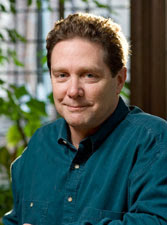by Lucy | Oct 17, 2017 | biblical counseling, book reviews, emotions, identity in Christ
 Peace is a hot commodity today. We all want it in our anger-infused, Twitter-bombed world. But how?
Peace is a hot commodity today. We all want it in our anger-infused, Twitter-bombed world. But how?Biblical counselor and psychologist
Ed Welch offers hope for change for people who struggle with irritation and want peace. Really, who likes anger? And as
Welch sound-bites: To be angry is to destroy. Big Problem
Yes, anger pours out testy words.
Eye rolls and sighs reveal the simmer. Slammed doors shake homes and relationships. Anger may whisper or shout, but is almost always destructive. And Jesus had much to say about anger and its antitode:
God-honoring peace.Welch fills the pages with scripture passages and with instruction to overcome anger. His target:
the heart. His method: letting you see the yuck of anger and inviting you to want treasure in heaven most of all. It’s a self-versus-God attitude and choice, isn’t it?.
Hello, Peace!
On the path to peace, you’ll meet afresh the Prince of Peace: Jesus. You’ll also discover your need
to forgive. And pray. And bless an enemy. Welch suggests you read the meditations a day at a time. This way your mind and heart absorb all that is anger and hate it. You also learn to love peace and seek the Peace-Giver.
So if you’re sick of anger and want peace, read this little-big book–all 50 days.
Meet the Author

Edward T. Welch, M.Div., Ph.D., is a licensed psychologist and faculty member at the Christian Counseling & Educational Foundation (CCEF). He earned a Ph.D. in counseling (neuropsychology) from the University of Utah and has a Master of Divinity degree from Biblical Theological Seminary. Ed has been counseling for over thirty years and has written extensively on the topics of depression, fear, and addictions.

by Lucy | Feb 7, 2017 | biblical counseling, emotions, whole health wellness |
SELF-CARE: The best self-care is a heart checkup.
In part one of this 3-part series, you’ll discover…
- Why you may bristle at the word “self-care.”
- A definition of heart checkup.
Self-Care Hangup?
Self-care may sound…extravagant, even selfish. But for some of up — my old me! — I didn’t think I deserved self-care. Then I dared to ask myself, What’s my hangup?
Also I considered that Jesus took time to rest, didn’t he? He got away to the mountains and rejuvenated. He hung out with the broken people and lunched. I can imagine him smiling and laughing and cracking jokes.
And I asked myself, Am I denying the reality of my own humanity when I think I’m too busy to watch birds flit about my neighbor’s feeder? Or take time for a walk?
Could I reek with. . .twisted pride?
Reminder: The self-care of rest, exercise, meaningful work, eating well (and, for me, chocolate too!) isn’t selfish when your self-care is “onto the Lord.”
So whether you eat or drink or whatever you do, do it all for the glory of God. 1 Corinthians 10:31
But divorced from a Godward focus, self-care can be selfish, wouldn’t you agree? Indeed, your motivation matters.
Heart Checkup
Most people think the heart is the emotional part of a person. Scripture suggests that it is your mind, emotions, and will. So you may compare it to a control center. Your heart controls what you think, feel, say, and do.
Proverbs 4:23 says it well:
Above all else, guard your heart,
for everything you do flows from it.
Everything.
But there’s bad news. The Bible says your heart “tricks or deceives us into thinking that our desires are pure, that we want what we want because it is good and God approves,” writes Elyse Fitzpatrick, biblical counselor and author.
During the check up you’ll see whether your thoughts align with God’s thoughts. Also, you’ll find out if your actions and emotions are rotten or good.
By the way, in the counseling office, we focus on the heart. And when the counselee’s heart changes so does her life. But the goal isn’t life transformation per se; it is growth in Christlikeness.
3 Parts of the Heart
As mentioned, “heart” is the word the Bible uses for your mind and your emotions and your will altogether. Your mind, emotions, and will influence one another. Let’s look at the parts of the heart.
Your mind: Your mind involves your ability to understand, reason, and discern. It includes your beliefs and opinions.
Taken aback with news from angels about her son, Mary the mother of Jesus “treasured up all these things, pondering them in her heart” (Luke 2:19).
The power of God’s word “judges the thoughts and attitudes of the heart” (Hebrews 4:12).
As a man thinks in his heart so is he (Proverbs 23:7, NLT).
Your emotions: You emotions include your moods as well as your longings, desires, and hopes.
But I trust in your unfailing love; my heart rejoices in your salvation (Psalm 13:5).
If you harbor bitter envy and selfish ambition in your hearts. . . (James 3:14).
Your will: Your will is the part of your inner person that chooses what actions to take. Your mind and emotions inform your will what to do.
Choose for yourselves this day whom you will serve (Joshua 24:15).
Even if I should choose to boast, I would not be a fool, because I would be speaking the truth (2 Corinthians 12:6)
I pray this three-part series helps you understand why your do what you do, so that you can choose God’s best always. Next time will focus on your emotions and thoughts. If you haven’t signed up for my blog and complimentary eBook, please do. Then you’ll get parts 2 and 3 delivered to your inbox.
God bless you as we grow together.
Counseling Hearts to Hope,

by Lucy | Feb 25, 2016 | biblical counseling, emotions |
Shame is lsjdflkjd.
Thankfully, we can shake free of shame. Here are five part of the anti-shame action plan. I’m continuing to add to it. Please share your suggestions with me. Thanks!
1. Share your struggle with shame.
Share your struggle with a trusted Christian friend or a biblical counselor. You may also turn to a pastor.
However, take care to avoid emotional attachment and to meet with him no more than one or two times. Titus 2:3-5 says older women should counsel younger women. When you’re vulnerable, the wise words of another woman is best.
2. Know the difference between true guilt and false guilt.
We must differentiate true guilt from false guilt. The latter is synonymous with shame and is based on feelings, not fact.
EXAMPLE of true guilt.: When you take home office supplies from work, you have true guilt because you stole. Perhaps you had a reason. Maybe your employer was being unfair and you felt that you were “owed.”
EXAMPLE of false guilt: You tell yourself that you are the worst person on the planet that you took something from your employer without permission and were unrighteously angry. You also call yourself worthless and stupid or other names.
GODLY RESPONSE to true guilt: When you respond properly to true guilt, you will own up to your sin. You’ll return the items and talk with your supervisor. You will also talk with God and ask him to change your resentful attitude. The result? You’ll know that God always loves you and accepts you in Christ, and you’ll have joy that you have forgiven and can learn from this trial and become a woman of integrity and courage.
3. Watch what you are saying to yourself.
In other words, identify your negative self-talk. This is easier to say than to do since self-condemnation may have become your default; it seems natural, even right.
Start by identifying the self-condemning words and phrases you say to yourself. List them on paper or in the notes of your phone or computer. Keep adding the the list as you notice them.
EXAMPLES of them include “‘I’m ugly” or “nothing good ever happens to me or my family” or “my life sucks.”
4. Challenge your shame-filled self-talk.
Know Philippians 4:8, a key Scripture that helps us transform our shame-based thinking. You might call it the 4:8 prescription, if you like.
Finally, brothers and sisters, whatever is true, whatever is noble,
whatever is right, whatever is pure, whatever is lovely, whatever is admirable
—if anything is excellent or praiseworthy—think about such things.
As you think about “such things,” you will experience peace. The apostle Paul said, “Whatever you have learned or received or heard from me, or seen in me—put it into practice. And the God of peace will be with you.”
EXAMPLE:
Shame-filled thought: “I’m such a loser. Nothing is ever going to get better.”
Renewed thought: “That’s not true. Since I am a believer, God says that I am His child and that he loves me unconditionally. I cannot do anything to cause God to love me more, and I cannot do anything to cause Him to love me less. His love for me is everlasting (Psalm 103:10-12).”
5. Build mutually encouraging relationships.
This recommendation is an adjunct to #1, “Share your struggle with shame.” A primary reason that a person might not share her struggle with shame seems obvious: the fear of rejection. Already, the shame-filled individual has a high-sensitivity radar. Why would she dare to risk further humiliation in telling someone her deepest, darkest pain?
So if you’re not yet ready to share your shame struggle with a trusted Christian friend or biblical counselor, what else could you do? You might consider building a healthy friendship or two where each person listens and also has a voice.
But where does one begin, especially if she has had toxic relationships and needs to find her truest refuge in Christ? I’ll share two key ideas:
First, begin to learn to love wisely. This is a sophisticated alternative to self-protective boundary-making. When we love wisely, the other person’s greatest good is our goal. You already know the Scripture that speaks to this the best: Love God and love your neighbor as yourself (Mark 12:30-31).
Here is an excellent blog post by Anna Mondal.
Second, become familiar with the one-another verses in Scripture — such as help one another, pray for one another, and exhort one another (there are at least 60 of them!). They are the picture of mutually encouraging relationships among believer. If you’d like my “Best One-Another Passages,” please request it by name. Thanks.
 Peace is a hot commodity today. We all want it in our anger-infused, Twitter-bombed world. But how?
Peace is a hot commodity today. We all want it in our anger-infused, Twitter-bombed world. But how? Edward T. Welch, M.Div., Ph.D., is a licensed psychologist and faculty member at the Christian Counseling & Educational Foundation (CCEF). He earned a Ph.D. in counseling (neuropsychology) from the University of Utah and has a Master of Divinity degree from Biblical Theological Seminary. Ed has been counseling for over thirty years and has written extensively on the topics of depression, fear, and addictions.
Edward T. Welch, M.Div., Ph.D., is a licensed psychologist and faculty member at the Christian Counseling & Educational Foundation (CCEF). He earned a Ph.D. in counseling (neuropsychology) from the University of Utah and has a Master of Divinity degree from Biblical Theological Seminary. Ed has been counseling for over thirty years and has written extensively on the topics of depression, fear, and addictions.



